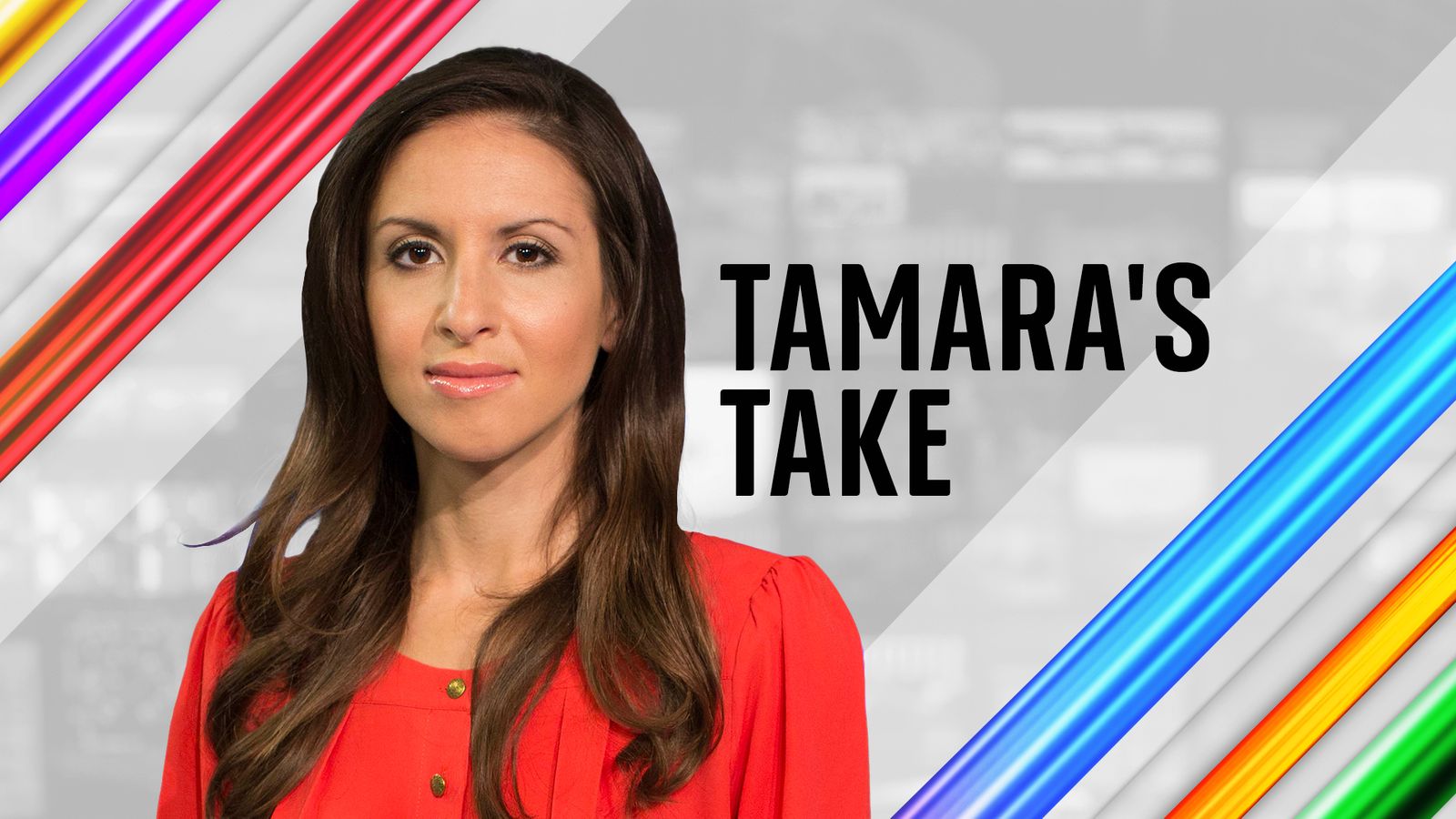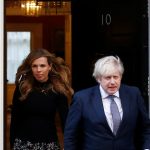Rishi Sunak became chancellor a month before the country went into COVID lockdown – and became the public face of the furlough scheme, as the government paid millions of people’s wages.
Today, in his first in-person speech to the Tory party conference, days after the scheme wound up, he is trying to do two things.
The first, to show he has a jobs plan for the recovery. But, also, after a spending splurge that many at this gathering see as not very Conservative, to show that he can somehow deliver on the “levelling up” agenda while getting the public finances on track, and trying not to raise any more taxes.
On jobs, he’s announcing a £500m plan to help people return to work, with extension of the Kickstart scheme for young people – which has been slower than expected to meet its 250,000 target – and support for people on low incomes to retrain and learn new skills.
The Tories are in a chipper mood, ahead in the polls, and confident that more lockdowns are not on the horizon. But the backdrop is not what they would have chosen – with ongoing fuel queues and a looming cost of living squeeze driven by rising gas prices, and the prospect of rising inflation and months-long problems with getting food onto supermarket shelves.
Conservative Party conference 2021: Lord Frost says UK ‘cannot wait forever’ for EU response amid Northern Ireland Protocol row
Conservative Party conference 2021: Chancellor Rishi Sunak doesn’t rule out unemployment rising now furlough scheme has ended
Conservative Party conference 2021: Tory chair Oliver Dowden challenged by senior MP Caroline Nokes over claim ‘male privilege’ is ‘crass term’
The chancellor knows some sectors are facing acute labour shortages, but he echoed the words of the prime minister yesterday when he told Sky News this is the price of “the transition to a high wage, high skill economy” – or bluntly, that if businesses are short of lorry drivers or butchers, don’t bring them in from abroad, just pay them more.
Nick Allen, of the Meat Processors Association, responded that this has a cost to everyone, that paying higher wages to butchers would mean more expensive products in the shops or relying on more imports. Transitioning away from free movement of people, he said, would take 18 months of government support, not weeks.
Please use Chrome browser for a more accessible video player
The clear message from ministers going into the conference is that with fewer low-skilled migrants, British workers will in time be paid more. They plan to, in the words of the Business Secretary Kwasi Kwarteng this weekend, take some emergency measures to ease shortages, but essentially “tough it out”.
But some Tories here privately believe the government will need to be more flexible and may need in the coming months to offer more help to industries if the real-world impact on products on the supermarket shelves continues to be disrupted, and to families who will be affected by higher living costs. It’s a dynamic to watch.






















